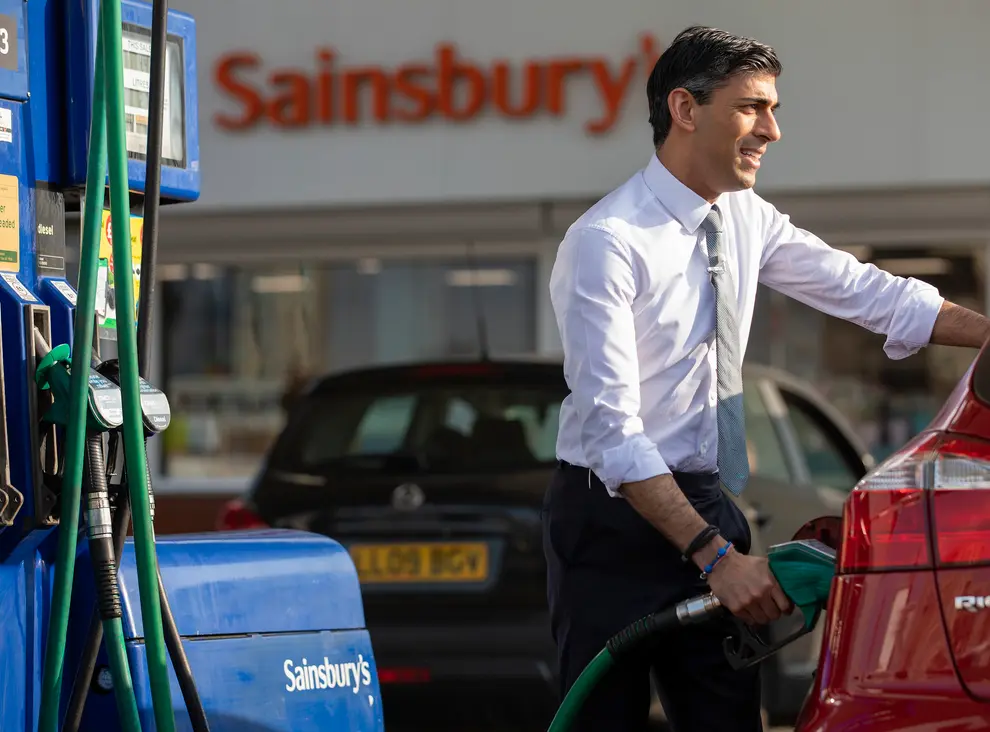Can Rishi Sunak rev up Tory election hopes by going after the ‘Top Gear’ vote?
After his Uxbridge by-election upset, the prime minister is expected to woo motorists, says Sean O’Grady. But will it gain any political traction?


If Rishi Sunak cannot win the next election on the main battleground of the economy, he seems confident that a series of political guerrilla raids on opposition policies will help him to harass the opposition, and push them into defending seemingly unpopular positions.
This tactic appeared to enjoy some success at the Uxbridge by-election and was recently supplemented by the high-profile relaxation of the electric car rollout and slowing the move from oil and gas boilers.
Now, Sunak is said to be after the motorist vote, with some eye-catching initiatives at the Tory conference: controls on councils’ power to impose 20mph speed limits; reducing the number of hours a day that car traffic is banned from bus lanes; easier challenges for parking fines; and, naturally, some hostility to ultra-low-emission zones and congestion charging. Potholes have also suddenly become a policy focus.
The question is whether these sorts of high-revving gestures have much political traction. Will appealing to the Top Gear constituency work?
Is he serious?
Yes, because he has to be. The success in the Uxbridge by-election proved how potent this sort of policy – London’s Ulez scheme – can be if it’s sold badly, implemented clumsily, and widely misrepresented in the media. If he assembles a large enough coalition of the disaffected and the grumpy, Sunak has at least a chance of consolidating his “core” vote and avoiding annihilation. If the economy stages an unexpectedly strong recovery, he might do even better.
Will it ever happen?
Many of these changes will require primary legislation, which takes time. Where they impinge on local government or the devolved administrations (though the emphasis seems to be on England), there will of course be resistance to the transfer of power on traffic and pollution policy back to Whitehall and Westminster.
So it’s likely that not much will happen by the next election, and the Treasury will need to answer some awkward questions about where revenues that are usually derived from fines for violating parking and speeding restrictions will in future be found. The spin is that local authorities will have to ring-fence more spending on roads. But where will they raise the money?
Will there be much more of this?
Lots. Don’t forget the prime minister’s original five “people’s priorities” – a series of pledges that expire and will be up for audit at the end of the year. The promises on NHS waiting lists and to “stop the boats” look like fails; halving inflation will be a pass; and the debt and deficit ones are in the balance.
On top of that, the Conservatives will be opening up a whole range of other attacks, all of which have been given tree-based codenames. Thus, the U-turn on net zero policies was referred to as Cedar (“C” for climate change); the proposal to replace A-levels with a French-style baccalaureate was known as Elm (“E” for education); and the plan to scrap the HS2 line to Manchester is called Project Redwood – “R” for rail.
There’s also something floating around about a creeping ban on smoking via a progressive increase in the legal age at which people can purchase tobacco, perhaps with some extra safeguards on vaping. All that, plus some routine assaults on Labour’s credibility, will make this a busy conference season, and a busy year ahead generally.
Will it work?
Drivers can feel a bit victimised because there are so many new rules, as well as the confusing signs, unforgiving speed cameras, congestion (arguably caused by bicycle lanes, road narrowing and low-traffic neighbourhoods), and hassle about parking. The petition in Wales against the new urban 20mph limits shows this quite graphically, though the polling evidence is conflicting. In certain towns and cities, such measures, usually pushed by Labour, Lib Dem and Green councillors, can be badly resented, and the “war on the motorist” can cause a backlash.
On the other hand, motorists are also, varyingly, pedestrians, cyclists, bus and rail passengers, and parents, so the politics of this isn’t, ahem, a one-way street. They might in any case also apply a hefty discount factor to promises made by a party in a desperate corner, and with a mixed record on sticking to its word.
Would we get used to 20mph in town?
Probably. Until 1960 there was no such thing as an MoT test; there was no breathalyser or general speed limit on motorways until 1967; and seatbelts for front-seat passengers were only made compulsory in 1983. Bus lanes only arrived at scale in the 1980s. None of these measures were popular, but none had much of a lasting electoral impact.






Join our commenting forum
Join thought-provoking conversations, follow other Independent readers and see their replies
Comments